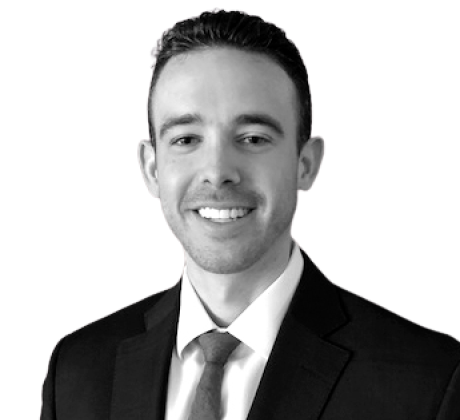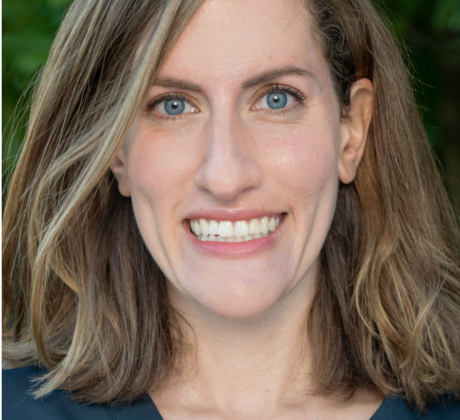Stephanie Ostroff is a speech-language pathologist and journalist. She enjoys blending knowledge from both fields to shine a light on innovators and changemakers in health care.


A comprehensive understanding of health care pays dividends for Nick Felici, MHCI ’20.
Crunching numbers and extracting insights is nothing new for Nick Felici.
Fresh out of college with a degree in economics, he landed a role as a senior analyst at Cigna managing contracts and root cause analysis. A few years later, Felici joined the medical economics team at AmeriHealth Caritas, analyzing Health Effectiveness Data and Information Set (HEDIS) measures.
Sifting through spreadsheets? That was familiar territory.
But early in his career, Felici identified a blind spot: the health care system itself. While he’d developed a deep understanding of the insurance industry, he was missing critical context about the rest of the landscape.
Penn’s Master of Health Care Innovation (MHCI), an online degree designed for working professionals, brought the big picture into focus for Felici. He says the program’s flexibility appealed to him, including its dynamic curriculum, which gave him a solid foundation in “not only the payer side, but the provider side as well, and really all parts of the health care ecosystem.“
Applying Classroom Concepts in Real-Time
Shortly after completing his first semester of the MHCI, Felici moved into a new role as provider performance manager at Independence Blue Cross (IBX). During the hiring process, the program piqued the company’s interest. Felici’s interviewers were equally impressed by its curriculum and caliber of faculty.
“I would say the MHCI helped me get into Blue Cross, and I was able to leverage the MHCI into a management position with IBX,” he says, noting the company’s close ties with Penn Medicine.
At IBX, Felici rolled out a series of value-based care programs at hospital systems across the region. Unlike the traditional fee-for-service model, which links payment to amount of services delivered, value-based care offers financial incentives based on patient health outcomes.
I would say the MHCI helped me get into Blue Cross, and I was able to leverage the MHCI into a management position with IBX.
Felici credits his Health Economics course, taught by Guy David, PhD, with giving him the tools to analyze data and structure value-based programs at IBX. He compounded its impact by leveraging concepts from Kevin Volpp, MD, PhD’s class on Behavioral Economics and Decision Making. The result: an increase in engagement and value-based dollars. Felici incentivized providers by measuring success as “improvement over yourself” rather than against others in the network.
“For example, if you were in the 5th percentile in a certain measure, and we say you’ve got to achieve the 90th percentile, the providers aren’t going to be engaged–it’s impossible for them to improve that much in one year,” he says. Behavioral economics taught him to reframe the incentive to “Just improve 5% over yourself. Then you’ll still be eligible for shared savings,” which led to more buy-in.
Felici’s MHCI cohort--composed of physicians, nurses, and entrepreneurs--also offered new insight.
“You really hear the challenges that they face in health care,” he says. “If I'm looking to roll out a value-based program, I often lean on docs from the program to learn about their headaches and what they can benefit from.”
When negotiating new IBX contracts with health care networks like Virtua and Cooper, Felici kept his classmates’ perspectives top of mind, prioritizing collaboration and data transparency. Sharing key measures bolstered providers’ ability to monitor patient screenings and raise their own quality scores.
“What kind of partnership can a payer create with the provider to really decrease medical costs as well as increase quality of care?” Felici considered. “That's where the value-based programs come in–to reward providers and health systems for excellent value of care.”
Limitless Potential Rooted in Health Care
Expertise in health care innovation keeps opening doors for Felici.
Since receiving his MHCI in spring 2020, his professional journey has taken him to a new university, a new company, and onto the pages of a medical journal. Each step of the way, he’s discovered that tapping into knowledge and connections from his Penn degree pays dividends.
The health care curriculum was very intensive in the MHCI. So I was able to bring new knowledge to the MBA and then offer that knowledge in the Healthcare Sector part.
As a graduate of the MHCI, Felici had a leg up a when he began his MBA at Duke University’s Fuqua School of Business, entering its Healthcare Sector Management certificate program.
“The health care curriculum was very intensive in the MHCI,” he says. “So I was able to bring new knowledge to the MBA and then offer that knowledge in the Healthcare Sector part.”
Felici’s deep familiarity with the health care ecosystem perfectly complemented the management-heavy courses in the MBA. This dual skill set appealed to Point32Health, where he was offered a director-level role overseeing a team of contractors for the joint venture between Tufts Health Plan and Harvard Pilgrim Health Care.
The position demands a deft understanding of the national health care landscape. Felici has had to translate his knowledge from the Mid-Atlantic to New England, where Accountable Care Organizations (ACOs) are standard. A solid grasp of the American Health Care System, thanks to Ezekiel Emanuel, MD, PhD’s first-year course in the MHCI, set him up for success across state borders.
I speak with classmates and learn what they are doing in other markets. If we can take the positives from each market and bring it to Philadelphia, it will be a win for all.
As he maps out his next career moves, Felici knows he will maintain close ties to the MHCI community. Collaboration across disciplines has paved the way to new opportunities. In the years since graduation, he’s co-authored an article in Frontiers in Cardiovascular Medicine with fellow MHCI alum Krzysztof Laudanski MD, PhD, an anesthesiologist, and has another paper in progress.
Felici has also remained in contact with former classmates and faculty through volunteering and speaking to current MHCI classes on the payer perspective. He intends to keep those relationships strong.
“The network is extremely important. I met folks from all sections of the health care industry and all throughout the country,” he says. “I speak with classmates and learn what they are doing in other markets. If we can take the positives from each market and bring it to Philadelphia, it will be a win for all.”

